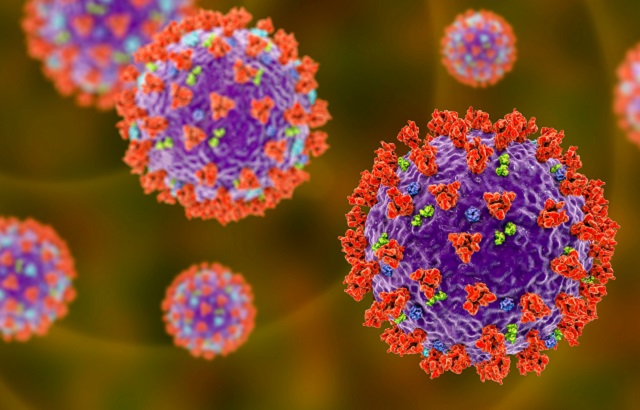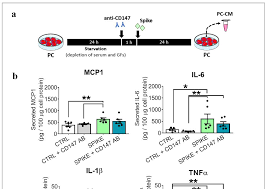
|
| Research finds Covid-19 spike protein binds to cells in the heart and could help to explain some effects of severe infection |
|
This early research looks at what happens when cells within the small blood vessels of the heart are exposed to high levels of the spike protein in a laboratory setting. It could help to start to explain some of the effects of severe Covid-19 infection, where levels of the virus are particularly high. |
|
Aug 27, 2021
by
BHF
Science & Medicine News |

|
| The SARS-CoV-2 spike protein disrupts the cooperative function of human cardiac pericytes - endothelial cells through CD147 receptor-mediated signalling: a potential non-infective mechanism of COVID-19 microvascular disease |
|
Background Severe coronavirus disease 2019 (COVID-19) manifests as a life-threatening microvascular syndrome. The severe acute respiratory syndrome coronavirus 2 (SARS-CoV-2) uses primarily the capsid spike (S) protein to engage with its receptors and infect host cells. To date, it is still not known if the S protein alone, without the other viral elements, is able to trigger vascular cell signalling and provoke cell dysfunction. |
|
Dec 21, 2020
by
bioRxiv
Science & Medicine Blogs |
Go to Top